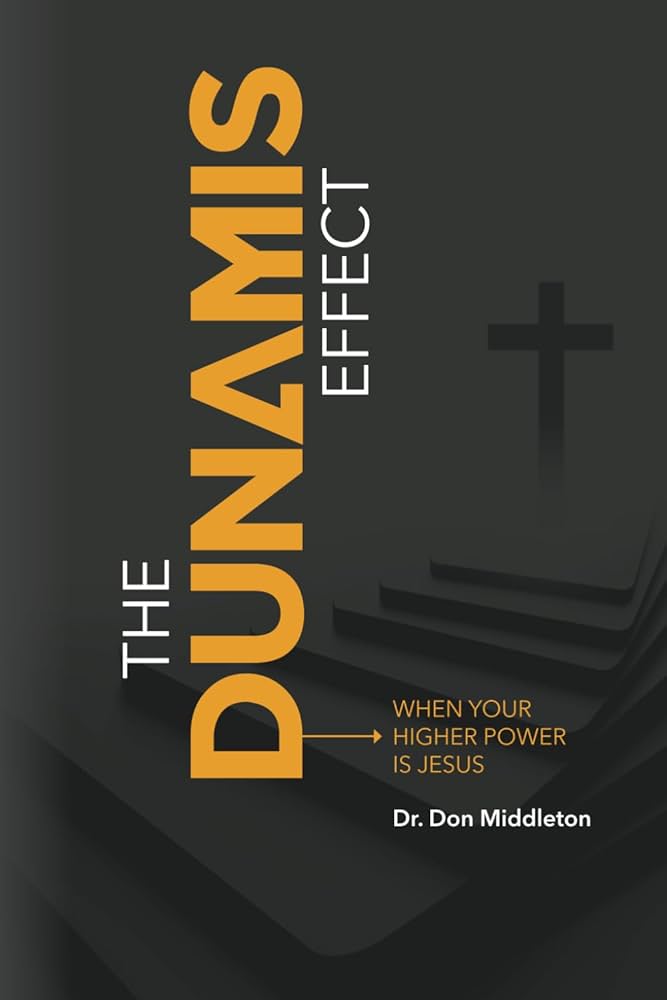We’ve been exploring different domains of Post-Traumatic Growth (PTG), a powerful framework for healing after trauma. Our culture is saturated with messages about PTSD. Books, counselors, medications, and alternative treatments promise relief, often at a high cost. While these can help, many people continue to suffer from PTSD for decades without true healing. One of the most powerful shifts that brings lasting change is experiencing a spiritual awakening in recovery—a moment when faith, healing, and transformation break through the darkness.
From Rumination to Renewal
One of the hallmark symptoms of PTSD is negative rumination—those intrusive, repetitive thoughts about regrets, injustices, or fears. It’s a dark mental loop that’s almost impossible to break on willpower alone. The secular medical model often prescribes long-term counseling or medication, which may restore some level of functionality, but rarely offer deep transformation.
About 90 years ago, two men—one a stockbroker and the other a surgeon—found themselves desperate in their alcoholism. They encountered the Oxford Group, a Christian fellowship rooted in the transformative power of the gospels. Through passages like the Sermon on the Mount, 1 Corinthians 13, and the book of James, they found freedom and began helping others do the same. This movement eventually became Alcoholics Anonymous, created by Christians for Christians.
Over time, as culture shifted toward secularism, AA broadened to include every kind of spiritual worldview—from atheism to New Age beliefs. While inclusivity grew, the original Christ-centered foundation often became diluted.
What Is a Spiritual Awakening?
The twelfth step of AA begins: “Having had a spiritual awakening as a result of these steps…” For some, the phrase raises concern, as if “awakening” means mixing Christianity with something vague or mystical. But in its 1930s context, it was firmly rooted in biblical truth.
Think of it this way: If I’m asleep in a room with a dresser and chair, waking up doesn’t create the furniture—it reveals what was always there. In the same way, when someone is caught in addiction, their focus narrows to acquiring, using, and hiding their drug of choice. But when sobriety begins, the fog lifts, and the work of the Holy Spirit becomes visible—though He was always there, waiting for their awakening.
Renewing the Mind in Christ
Paul writes in Romans 12 about the renewal of the mind. For people in recovery, this is essential. The transformation happens through practices like:
- Regular prayer and meditation
- Spending time in Scripture
- Filling life with God-centered content
Even ancient Christian disciplines like centering prayer help shift attention away from destructive rumination. Whispering a phrase such as “Come, Jesus” for just ten minutes, paired with slow, steady breathing, can reorient the heart and mind. Over time, this opens us to God’s “good, pleasing, and perfect will.”
This is Post-Traumatic Growth in recovery—a shift from looping negativity to spiritual clarity, from numbness to purpose, from mere survival to transformation.
A Christ-Centered 12-Step Path
At The Dunamis Initiative, we believe in returning the 12 steps to their original foundation—Jesus Christ. We don’t compromise by leaving the door open to “any higher power.” Instead, we believe in the living God of the Bible, who alone brings lasting healing.
This kind of spiritual awakening isn’t abstract. It’s practical, powerful, and deeply personal. It’s the wake-up call every heart longs for—the invitation to grow into the kingdom of heaven.
More on Post-Traumatic Growth
This post is part of our series on Post-Traumatic Growth in recovery. Explore the other domains of PTG and how they can transform your journey:
- New Possibilities → How recovery can open doors you never imagined.
- Relating to Others → Finding your tribe and building authentic community.
- Personal Strength → Discovering courage and resilience after trauma.
- Spiritual Change → Growing closer to God through surrender and faith. (You are here)
- Appreciation of Life → Learning to value each day as a gift.
Additional Resources
Looking to go deeper? These trusted resources explore Post-Traumatic Growth and faith-based recovery:
- Posttraumatic Growth and Recovery from Addiction (Haroosh & Freedman, 2017) – Study showing how PTG contributes to addiction recovery.
- A Mixed Methods Study of Posttraumatic Growth in Addiction Recovery (Runyan et al., 2024) – Research exploring how social support and personal strength predict fewer relapses and more growth.
- Measuring the Positive Legacy of Trauma (Tedeschi & Calhoun, 1996) – Foundational research introducing the PTG Inventory and its five domains.
Featured Resource

Start your journey with the first chapter of The Dunamis Effect. This powerful resource introduces how a faith-based 12-step approach can bring hope, healing, and lasting change. Download your free chapter today and see how God can transform your recovery journey.
Use this form to access the first chapter:
By submitting this form you agree to receive updates and information from The Dunamis Initiative via email. We are careful with your information and do not redistribute it in any way.
